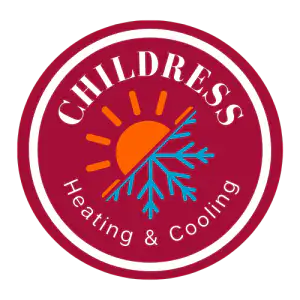Winter Safety Tips for Pets: Keep Them Warm and Healthy at Home
Winter in Alabama may not bring the extreme cold of northern states, but temperatures can still drop enough to create challenges for pets. For pet owners in Southside, Gadsden, and Etowah County, keeping animals safe during colder months is more than bundling them up—it’s also about maintaining a warm, comfortable home environment.
A properly functioning HVAC system is a key part of keeping your pets cozy, healthy, and protected from winter hazards. At Childress Heating & Cooling, we’ve served the community for over 20 years, helping families maintain safe, energy-efficient homes. In this guide, we’ll share essential winter safety tips for pets while highlighting how your HVAC system can help maintain optimal indoor comfort.
1. Maintain a Warm Indoor Temperature
Pets are sensitive to cold, especially smaller breeds, older animals, and those with short fur:
- Keep your home consistently warm using your heating system.
- Aim for an indoor temperature between 68–74°F.
- Avoid sudden temperature drops by keeping doors and windows closed.
Regular maintenance ensures your heating system performs efficiently, providing reliable warmth for both pets and humans.
2. Provide Cozy Bedding and Resting Areas
Create warm, safe spaces for pets to relax:
- Use blankets, pet beds, or heated mats for comfort.
- Position beds away from drafts or cold floors.
- Consider elevated beds for small dogs or cats to prevent contact with cold surfaces.
A well-heated home reduces the need for supplemental heating sources, which can pose fire hazards if used improperly.
3. Limit Outdoor Exposure During Cold Weather
Even brief periods outside can be dangerous:
- Avoid leaving pets outdoors for extended periods.
- Supervise walks and ensure pets are dressed appropriately with coats or sweaters if necessary.
- Check paw pads for ice, salt, or other irritants after outdoor activity.
Keeping pets indoors in a heated environment reduces the risk of hypothermia or frostbite.
4. Monitor for Signs of Cold-Related Stress
Watch your pets for warning signs of discomfort:
- Shivering, lethargy, whining, or curling up tightly.
- Cold ears, paws, or tail tips may indicate excessive chill.
- If your pet seems uncomfortable, bring them to a warm indoor space immediately.
Indoor heating and proper insulation maintain steady temperatures that keep pets healthy and comfortable.
5. Keep Water Available and Unfrozen
Hydration is just as important in winter as in summer:
- Check water bowls frequently to ensure they haven’t frozen.
- Place bowls away from cold drafts.
- Consider heated water bowls for areas prone to freezing temperatures.
Maintaining proper indoor temperature helps prevent water bowls from freezing, ensuring pets always have access to fresh water.
6. Be Cautious With Space Heaters and Fireplaces
Many homeowners use supplemental heat during winter:
- Keep pets away from open flames and portable heaters.
- Avoid leaving space heaters on unattended.
- Ensure fireplaces have secure screens to prevent burns.
A well-maintained HVAC system reduces reliance on risky supplemental heating, protecting both pets and property.
7. Protect Against Indoor Hazards
Winter brings additional indoor risks:
- Keep antifreeze, medications, and cleaning products out of reach.
- Avoid leaving cords or small objects where pets could chew.
- Maintain proper airflow to prevent excessive dryness, which can irritate pets’ skin and respiratory systems.
Your heating system, combined with proper humidification, ensures a safe and comfortable environment for pets.
8. Adjust Your Pet’s Diet and Exercise
Winter may change your pets’ activity needs:
- Monitor calorie intake if pets are less active indoors.
- Provide safe indoor exercise options to keep pets healthy.
- Ensure proper nutrition to support their immune system during colder months.
Maintaining a warm indoor environment allows pets to exercise safely without the risk of cold exposure.
9. Schedule Professional HVAC Maintenance
A reliable HVAC system is crucial for winter pet safety:
- Schedule a professional heating inspection before the coldest months.
- Clean or replace filters to maintain indoor air quality.
- Ensure your system can handle peak winter demands.
A well-maintained system keeps your home warm, reduces energy bills, and creates a safe space for pets during extreme weather.
Frequently Asked Questions (FAQs)
Q1: How cold is too cold for pets indoors?
A: Indoor temperatures below 65°F may be uncomfortable for small, senior, or short-haired pets. Keep your home consistently warm with your heating system.
Q2: Can pets stay safe with space heaters?
A: Only if used with supervision and safety precautions. Central heating is safer and more reliable.
Q3: How often should I service my heating system for winter?
A: Schedule maintenance once per year before the heating season to ensure efficiency and reliability.
Q4: Should I give my pets extra food in winter?
A: Only if they are more active outdoors. Monitor their activity levels and adjust portions accordingly.
Q5: How can I reduce dry indoor air for pets?
A: Use humidifiers or your HVAC system’s built-in humidification features to maintain indoor humidity between 30–50%.
Contact Us
Childress Heating & Cooling is your trusted American Standard Customer Care Dealer, proudly serving Southside, Gadsden, and Etowah County for over 20 years.
- If your heating system needs maintenance, repair, or replacement, call us or visit our website.
- We help homeowners maintain safe, warm homes for both people and pets.
Phone: (256) 312-1893
Email: [email protected]
Website: childressheatingandcooling.com
Follow Us on Social Media:
- Facebook: Childress HVAC
- Instagram: @childresshvac
- Pinterest: Childress Heating and Cooling

